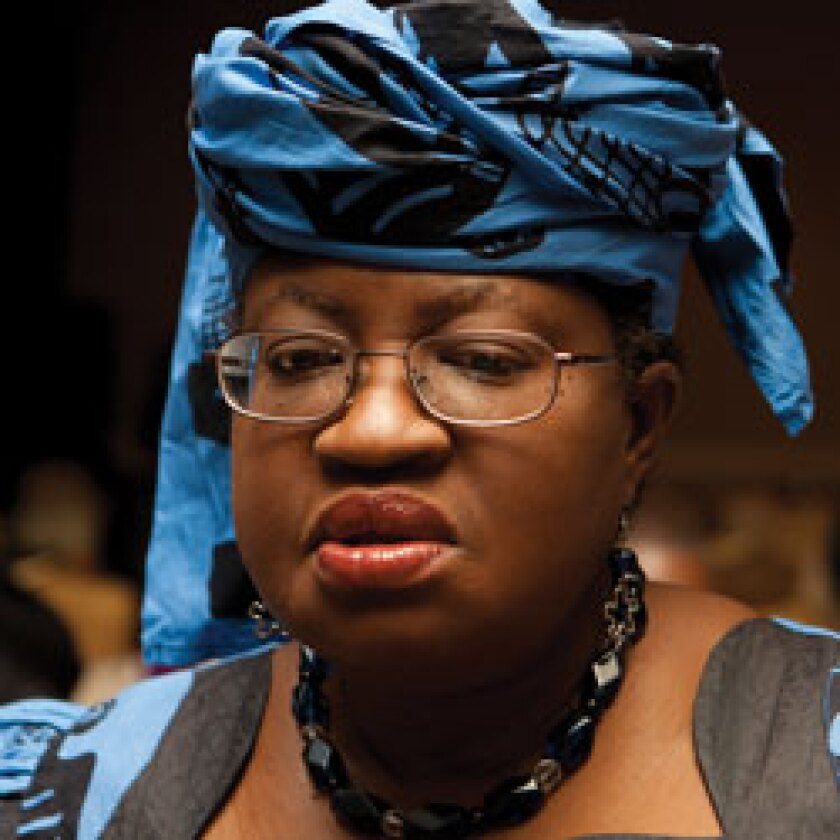Nigeria’s sovereign wealth fund will launch next month, despite being delayed by opposition from state governors who want more control over oil revenues, finance minister Ngozi Okonjo-Iweala has insisted.
And a crucial law changing the way oil companies operate and are taxed is also being pushed forward after long delays, Okonjo-Iweala told Emerging Markets in an interview in Washington.
Following President Goodluck Jonathan’s election win in April, “the bottom line is that we’ve got a new programme, and we’ve got a president who wants to bring coordination to the way the economy’s run,” Okonjo-Iweala, a former World Bank managing director, said.
The battle over oil revenues reflects long-standing tension in Nigeria between federal and regional governments. The Nigeria Governors Forum (NGF) wants excess crude revenues to be split between the federal, state and local governments, rather than it all going into the new Nigeria Sovereign Investment Authority (NSIA).
The governors have threatened to block implementation of the new national minimum wage structure, a key policy for Jonathan, in protest.
Okonjo-Iweala doubted that the government would have to introduce constitutional changes to overcome the governors’ objections. Their cooperation was vital, and could be secured via the National Economic Council, where there is “quite a robust dialogue”. She was optimistic that the governors would back the legislation, “seeing that it is good for the country”.
The government is arguing strongly that the SWF is needed to shield the economy from oil price volatility. The NSIA is “a countercyclical institution which will allow us to avoid the pro-cyclical economy we had in the past,” she said.
Jonathan on 27 May signed into law a bill to set up the NSIA with $1 billion seed capital and a structure that will be funded monthly when oil prices exceed the budget target. Three funds – an infrastructure fund, a long-term savings fund and a stabilization fund which will replace the Excess Crude Account (ECA) and will prop up the budget when oil prices dip – will be created. By law, each must each hold at least 20% of the total assets.
A senior international monetary official said: “The SWF is an improvement on the ECA, with statutes that clearly state it is the federal government that controls the funds. But it needs the states to buy into it, and you can’t overestimate the complexity of this.”
Okonjo-Iweala also expects progress on the stalled Petroleum Industry Bill (PIB), which petroleum minister Diezani Allison-Madueke will seek again to push through parliament.
The PIB will change fiscal terms, alter the way big oil and gas-producing joint ventures operate and are funded, and redefine the role of state oil giant Nigeria National Petroleum Corporation.
“I don’t think [the PIB] is make or break for the budget, but it is important for investors,” Okonjo-Iweala said.
